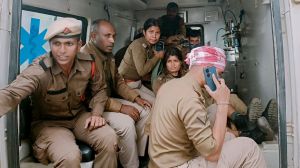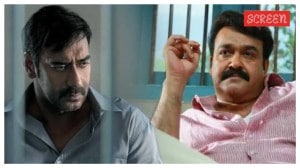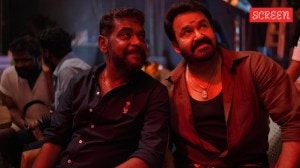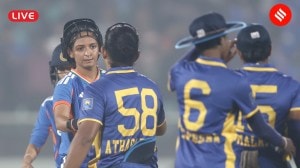Elusive autonomy for AIR and Doordarshan Wanted 8212; A media c
Once again, the same old controversy is cropping up: whe-ther Akashvani and Doorda-rshan should be autonomous or not. I thought the matter...

Once again, the same old controversy is cropping up: whe-ther Akashvani and Doorda-rshan should be autonomous or not. I thought the matter was settled after their blatant misuse during the Emer-gency.
In fact, it was one of the major excesses committed as the Shah Comm- ission, which went into different aspects of the Emergency, pointed out. Civil liberty and human rights organisations, besides individuals including present Informa-tion and Broadcasting Minister Arun Ja-itley, fought relentlessly till the government conceded the demand to free the official-controlled media. It is another st-ory that the V.P. Singh government kn-uckled under to pressure and enacted a watered-down Bill.To go over the same exercise again indicates a lack of commitment to the principle.
The point at issue is not whether commercial channels have whittled down the monopoly of Akashvani and Door-darshan but whether powerful media like the radio and the TV should be controlled and directed by the government. Political parties have their own points of view. They should not be allowed to sell or spread them at the expense of public money.
That the Prasar Bharati Board, the ap-ex body, has not been functioning effectively since its inception is apparent. But the board members8217; defence is that they were not given the authority to function from day one. Indeed, it is true that the government never loosened the purse-st-rings.
How can any board work independently when the ministry sanctions literally every paisa? The staff of Akashvani and Doordsarshan, supposed to be under the board, has continued to be under the administrative control of the Information and Broadcasting Ministry. Against this background, it is not fair to question the very need for autonomy.
Even the best of members cannot perform under such conditions. My complaint is that, eminent as these people are, they never made the autonomy an issue. They should have quit en bloc. Since they went on compromising, the government went on ignoring them. The situation today is that they have no tools for performing but, at the same time, they are expected to show results. The government can ch-ange members but the new ones will be as much a failure as the old ones unless the ministry creates a proper environment for their functioning.
It is no use defining autonomy when shadow is sought to be projected as substance and what has been given is on paper. The government should be discuss-ing steps to make the official electronic media really autonomous on the BBC pattern. This can be done by giving more autonomy, not by curtailing it. The basic idea is that the government should not interfere nor should dissent be curbed. Any move to do away with autonomy, as former Information Minister Pramod Ma-hajan hinted, must be resisted strongly.
The objection to the quality of board members does not take us far because the appointing committee comprises the Vi-ce-President and the chairman of the Pr-ess Council of India PCI and one government nominee. There are reports that the committee was last time asked to locate six members and it obliged the government by doing so within a day. The present three vacancies should be filled without bringing in politics. Surely, we can find people who are professionally competent and politically independent.
Another institution which is fading is the PCI. Leading newspapers are not cooperating with it and its 28 members, individually or collectively, do not have the stature to attract attention on their own. One remedy suggested is to arm the council with punitive power to take action ag-ainst erring8217; newspapers and journals. Th-is, if ever effected, will be counter-produ- ctive. The council8217;s authority is moral, that of pressmen judging pressmen.
In the ni-neties, when there was a demand to give the council teeth, a parliamentary committee was appointed to examine it. But it came to the conclusion that there were enough laws on the statute book to deal with instances of inflammatory writing and that the council wo-uld serve the cause of free press better by staying as a moral force.
The problem with the council is that some of its chairmen have not served the cause of free press well. One of them clearly sidetrack-ed the discussion on press censorship during the Emergency. At that time, he wrote to the then Information and Broadcasting Mi-nister, V.C. Shukla: 8220;You remember I spoke to you about the desire of some members to have a meeting convened for the purpose of discussing the Emer-gency and censorship.
I had an informal meeting of the Delhi-based members and I was able to convince them that this is not necessary or desirable. So, this will not figure in the agenda of any meeting that is being called.8221;
The government has to have another look at the council. Its membership needs to be drastically changed. Even otherwise, it has to have persons from the TV, which is no less influential than the press. If pressmen or newspaper proprietors can be arraigned before the council on a complaint of irresponsible8217; writing or comment, why not broadcasters or commentators for a similar offence? In fact, the PCI should be converted into a media council and include members not only from the print but also from the electronic media.
Nonetheless, whether it is newspapers or the electronic media, freedom of expression is something basic. India8217;s first Prime Minister Jawaharlal Nehru said some 50 years ago: 8220;I would have a completely free press with all the dangers involved in the very use of that freedom than a suppressed or regulated press.8221; He came under severe criticism. The Congress had demanded some curbs on the press. I am sure Nehru would have included the TV if it had the kind of reach it has today. Except for Indira Gandhi, who gagged the press during the Emergency and detained some journalists without trials, this sentiment has been respected by all prime ministers.
This does not, however, mean that pressmen, or other mediamen or, more so, their proprietors, have maintained the standard which distinguished them in the fifties, the sixties and even the seventies. Personal, commercial or political interests have increasingly come to the fore. Lea-ders of the press and the electronic media have not acquitted themselves well.
This makes one wonder which freedom we are talking about and whose freedom. There are many other questions which need a detailed study. The government will do well to appoint a media commission to look into all aspects of the functioning of the print and electronic media and questions relating to their freedom in depth.
The commission should also define the parameters of media morality and responsibility. Freedom of the media is important. But so is its responsibility. Freedom does not mean freedom from something, but freedom for something.
- 01
- 02
- 03
- 04
- 05































